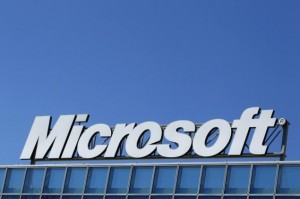 Microsoft Corp has dropped a lawsuit against Vitalwerks Internet Solutions that alleged the privately held Web services firm failed to take proper steps to prevent its systems from being abused by cybercriminals.
Microsoft Corp has dropped a lawsuit against Vitalwerks Internet Solutions that alleged the privately held Web services firm failed to take proper steps to prevent its systems from being abused by cybercriminals.
The two companies said on Wednesday they had settled the lawsuit, which was announced by Microsoft on June 30 as it launched an operation to wrest control over infected PCs from cybercriminals. The software maker claimed the criminals were using Vitalwerks servers for communications.
Microsoft’s operation targeted malicious software known as Bladabindi and Jenxcus, which is believed have infected millions of Windows PCs around the globe.
Microsoft obtained an order from a federal judge in Nevada to launch the operation, telling the court it would be able to siphon off criminal traffic without impacting legitimate users of a service run by Vitalwerks, known as No-IP.com.
Microsoft’s Digital Crimes Unit told the court it did not directly seek help from Vitalwerks because the company had not cooperated with similar requests from other firms to stop malicious traffic.
Vitalwerks said on Wednesday that the operation disrupted service to some 1.8 million legitimate customers for several days, and that the interruption could have been prevented had Microsoft asked the company for help.
“When we notice activity, we act on it,” said Vitalwerks Vice President Dylan Zigenis. “When we are approached by outside parties, we look at the evidence and we take action when appropriate.”
Microsoft confirmed that service had been disrupted to an unspecified number of Vitalwerks customers, but said in a statement Wednesday that it was because of “a technical error.”
“Microsoft regrets any inconvenience these customers may have experienced,” the statement said.
Vitalwerks said the outage, along with allegations by Microsoft that the company was not cooperative in fighting cybercrime, had hurt its reputation, causing some customers to closed their accounts seek refunds.
“We are battling to get our reputation back,” Zigenis said.
A representative for Microsoft said the company had no immediate response.
Microsoft’s lawsuit also named nationals in Kuwait and Algeria, who the company said were the developers of pieces of malware. Microsoft has not dropped those claims.
Source-NDTV





